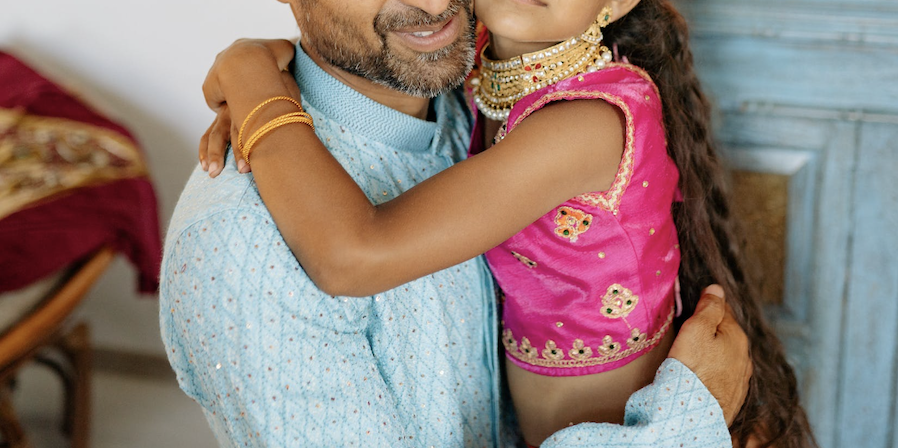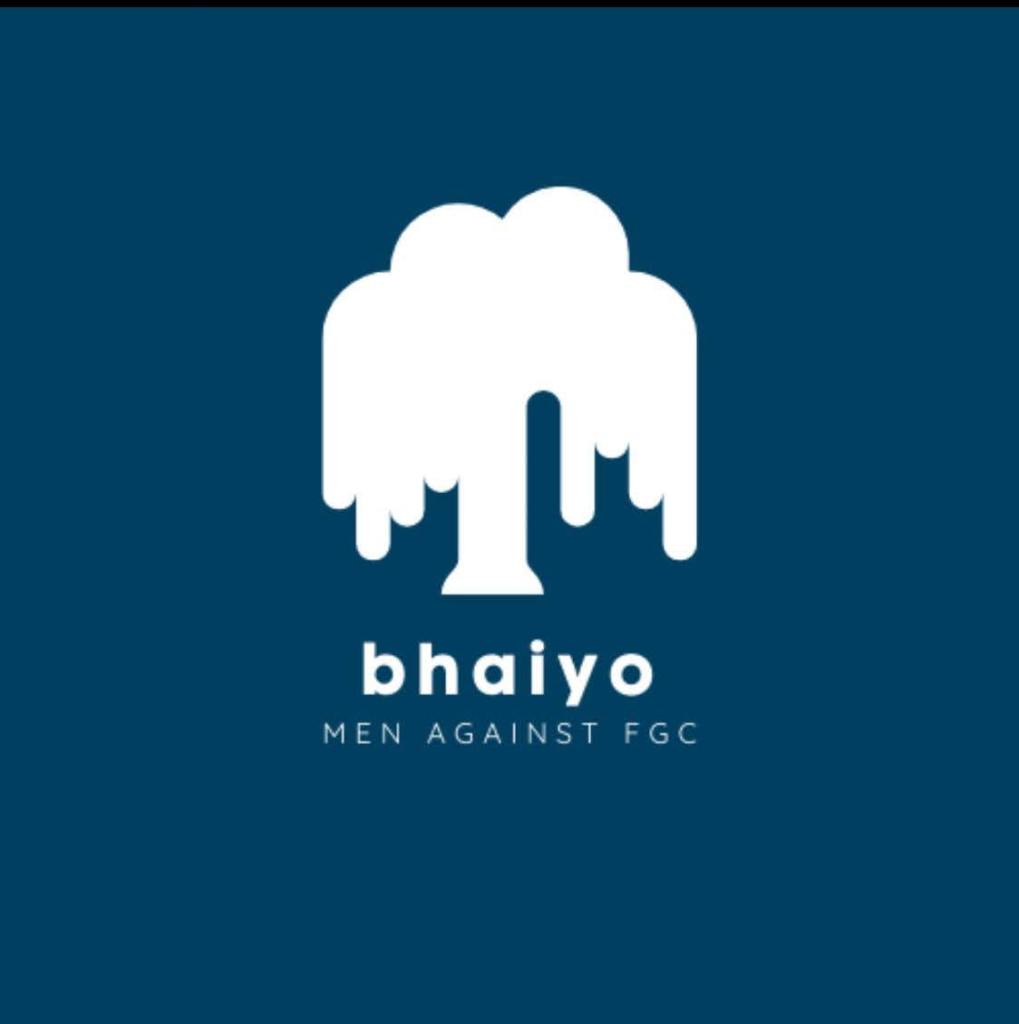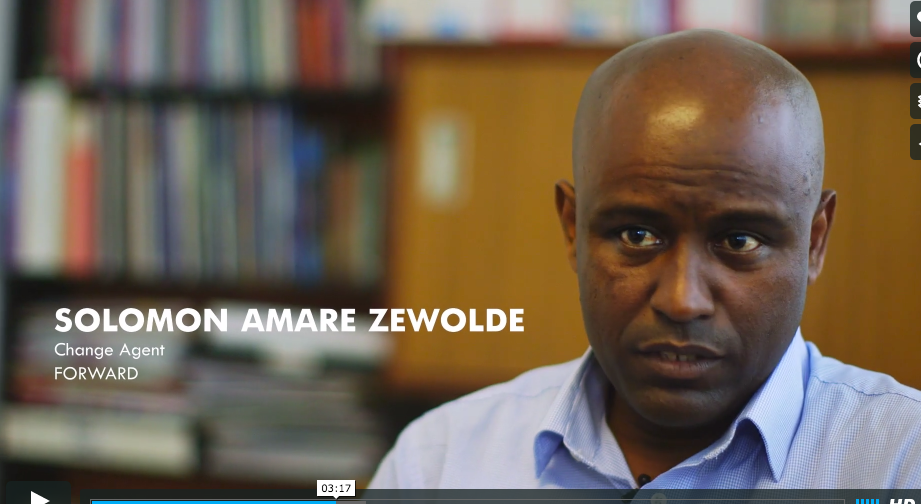A daughter’s khatna, a father’s regret: A poem in Hindi

by Abbas Ali Bohari This is a heartfelt poem about a Bohra father’s greatest regret. The poet, who hails from Indore, India, spent years praying for the birth of a child and was finally blessed with a daughter. A few years later, he found out that she had been subjected to khatna, or female genital cutting, behind his back. This is a poem about his grief for her, his regret, and his plea to the world to end the cutting of girls in the name of religion. एक पिता का अफ़सोस कई बरसों रहे दोनों बेकरार रहमान ने लगाया बेड़ा पार बुजुर्गों की दुआओं का भी असर गुड़िया रानी आयी हमारे घर रौशन कर दिया हमारा संसार लायी खुशियों की सौगात अपार अब ना करू किसी की दरकार मालिक बस तेरा ही शुक्रगुज़ार हँसते हँसाते गए बरस गुजर एक दिन ऐसा आया खूंखार मज़हब के नाम पर मचाया अंधेर मासूम के जिस्म को किया दागदार कसम ख़ुदा की मैं नही ख़तावार पीठ पीछे किया सारा अत्याचार कही नही मिली दींन में तफ़सीर हैरां हूं कब से शुरू हुआ ये फ़ितूर शरीयत का अंग बताते ज़ाहील ज़ोकर पर मुख़ालिफ़त करते इल्मी ज़ानकार मगरिबी तहज़ीब करे इंकार मशरीकी कौमे बैठी लाचार खत्म करो नाजायज़ विचार सज़ा पाये सारे जो है हक़दार *अब्बास* करे अफ़सोस बारबार बचा ना पाया अपना लख्तेज़िगर
Everyone’s Responsibility: Discussing the Role Male Allies Play In Preventing Female Genital Cutting

By Cate Cox Sahiyo held the a February webinar, Everyone’s Responsibility: Discussing the Role Male Allies Play In Preventing Female Genital Cutting (FGC). This webinar provided the opportunity to hear from four speakers Jeremiah Kipainoi, Khadijah Abdullah, Tony Mwebia, and Hatim Amiji moderated by Murtaza Kapasi about the role men play in ending FGC. From direct action to research to personal conversations, this webinar explored the many ways in which men can involve themselves and women can work to involve men in empowering communities to abandon FGC. Mariya Taher, Sahiyo co-founder and the U.S. Executive Director, gave the audience an introduction to Sahiyo’s many programs. Next, Kapasi, founder of Bhaiyo, took us through his work and the motivation for starting Bhaiyo. Bhaiyo is Sahiyo’s groundbreaking new male ally program that seeks to encourage men to become involved in conversations about FGC. After a short introduction to our panelist’s work, and a screening of Amiji’s Voices to End FGM/C Film Listen, the Q&A portion of the event was initiated. Panelists answered questions about their work, the important role men play in ending FGC, and some challenges they have faced along the way. Our panelists explored how many men are often unaware of the multi-layered impacts of FGC on women and communities, and how FGC is often tied to patriarchal violence. “It’s important that more men kind of speak up about this, and join us, because they can be an ally to prevent this happening to women and girls,” panelist Abdullah said. At the end of the webinar, the audience had the opportunity to ask the panelists questions about their experience and knowledge. Questions included asking how the panelists’ experiences as brothers and sons of women who have undergone FGC, and how male partners can play a role in helping their wives and girlfriends have safe and pleasurable sex. Once audience member astutely asked about the connection between gender-based violence and FGC. “The deadline to end FGM/C is 2030, but there is no deadline to end patriarchy,” Mwebia said. While we do need to work to fight FGC, it is also important to understand how it is connected to the larger system of violence against women and girls. Everyone’s Responsibility: Discussing the Role Male Allies Play In Preventing Female Genital Cutting (FGC) explored the roles that men play in empowering communities to abandon FGC and how people can all work to empower men to have these conversations. It was a reminder that ending FGC is everyone’s responsibility. Watch the recording of this event. Read the transcript.
PRESS RELEASE: Launching Sahiyo’s Newest Program: Bhaiyo: Male Allies United in Ending Female Genital Mutilation/Cutting

Launching Sahiyo’s Newest Program, Bhaiyo: Male Allies United in Ending Female Genital Mutilation/Cutting Boston, Massachusetts, February 6, 2021 On Feburary 6th 2021, The International Day for Zero Tolerance to FGC, Sahiyo is launching “Bhaiyo” (“brothers” or “male friends” in Gujarati), is a program for male allies working to spread education and awareness on the human rights issue of female genital mutilation/cutting (FGC). Bhaiyo’s mission is to build a community where men, Sahiyo members, and survivors will be able to discuss female genital cutting in hopes of changing the narrative, and creating a shift towards ending this harmful practice. “Bhaiyo allows men to have open and honest conversation about a topic they may or may not know should be important to them. As brothers, it’s our collective responsibility to leave the world safer than we found it for those that we love. Bhaiyo aims to raise awareness to help advocates and survivors working to end FGC today,” said Murtaza Kapasi, Bhaiyo program lead. FGC has been on the public radar as of late, due to a first of its kind indictment of a Houston-based woman who transported a minor out of the country, for the purpose of the youth undergoing FGC. Just days before, on January 5th, another major announcement came out: the H.R. 6100-STOP FGM Act was signed into law, an act which criminalizes female genital cutting and makes certain government agencies such as the Departments of Education and Justice, responsible for reporting to Congress on the estimated number of wome nand girls who have undergone or at risk of FGC in the United States. These are both groundbreaking legal moves, but Sahiyo knows it takes more than law to end FGC. Bhaiyo is another step towards engaging with communities, to change social norms and cultural tradition from within. By bringing men’s voices more actively into the conversation, we believe our program will accompany the law by bringing about societal change via dialogue and education. In recognition of Bhaiyo, we will be hosting the webinar, “Everyone’s Responsibility” on February 23rd, at 12 noon EST. This webinar will focus on the role male allies play in prevention efforts towards ending female genital cutting (FGC). Four expert panelists will lead the webinar, Jeremiah Kipainoi, Murtaza Kapasi, Khadijah Abdullah, and Tony Mwebia. All of them have worked in the field of FGC prevention, encouraging men to become active in empowering communities to abandon FGC. To learn more about the role men play in FGC prevention, and how you can encourage male allyship, please register for the event. Feel free to grab a beverage or a snack beforehand and join us for what is sure to be an insightful and empowering conversation. This event is open to anyone who wishes to attend. Register Today: http://bit.ly/EveryonesResponsibilityTickets For more information, contact Sahiyo at info@sahiyo.com. Would you like to be a Bhaiyo? Submit an application here.
Sahiyo’s male ally campaign: We need your voice!

Seeking Male Allies to Take a Stand Against Female Genital Cutting Female Genital Cutting (FGC) is a harmful practice, deeply rooted in misunderstanding, that requires individuals of all genders, sexual orientations, races and backgrounds to come together to ensure that not another woman or young girl is harmed. We at Sahiyo have been so grateful for the outpouring of support from our volunteers and partners all over the globe tirelessly working with us to end FGC, yet we know that more needs to be done. Particularly, we need more male supporters to stand with us and make it known that practices which alter or harm the female body, whether in the name of culture, tradition or religion, will not be tolerated. Everyone deserves the right to be a free agent acting autonomously over their body, life, and the choices they have been given. When a young girl is told that she needs to be cut, for whatever the reason presented, she loses this right. Many women who have undergone FGC often grapple with difficult emotional and psychological wounds. Even less talked about, is the negative impact FGC can have on a woman’s relationship with her partner. Frequently, issues arise involving intimacy, sexuality and childbirth making these relationships strained and painful. Simply put, we must all work together to ensure that we support survivors and prevent FGC from happening to future generations of girls. Speaking out on such a subject can be difficult. However, men must be part of this movement as well, as anti-FGM activist Tony Mwebia powerfully said: “Not involving men in the fight against FGM is like a doctor treating symptoms of a disease and ignoring the disease itself” #MenEndFGM” How you can help: We are seeking various submissions from our male allies by July 20th, explaining why they are united with us in ending female genital cutting. Types of submissions: A short, 30 second to 1 minute video. Videos can be taken from a smartphone or from any alternative, digital device available. Provide a quote explaining why you want to end FGC along with a picture of yourself and your name. Write a blog post on the need for men to be involved in FGC that is 900 words or less. We accept anonymous submissions as well. Send all submissions via email to: info@sahiyo.com by July 20th. In the subject line, write “Male Ally Campaign to end FGC.” Please consider being a part of this campaign to help us end FGC, we need everyone’s voice! #MenToEndFGC If you have any questions, please get in touch with Sahiyo, at Info@sahiyo.com.
My daughter is the joy of my life. There was no way I could have her cut.

by Ashraf Engineer Age: 41Country: India Picture this if you can without your heart racing and eyes welling up. A girl, let’s say she’s seven years old, is dressed up by her mother and told she’s being taken for a walk and an ice cream. She clings to her mother’s arm in glee and follows her, secure and happy. She is led to a house in the neighborhood where her mother undresses her and holds her down. A strange woman removes a razor blade and in a single, heart-stopping motion cuts the child’s clitoral hood. The pain will ebb, the flowing blood will stanch but the scars will remain for life. A child has been damaged and her trust broken. I hail from the Dawoodi Bohra community where female genital cutting (FGC) is prevalent but the thought ofsubjecting my little girl to it never once entered my mind. She is the joy of my life, she gives it meaning. There was no wayI could do that to her. Among the many ugly manifestations of patriarchy, I believe FGC is perhaps the most horrific. We see everywhere how society feels the need to control every aspect of a woman’s life – from whether she can live aftershe is born and whether she can get an education to whom she can marry and when. This attitude often extends to controlling her sexuality – through FGC. FGC is one of the most serious human rights issues before us today. It is an ongoing practice rarely talked about even by those who have undergone it, and it is not part of the public consciousness. Like marital rape and abuse, it exists around us but is rarely thought about. According to UNICEF data, there are at least 200 million girls and women across 30 countries who have been cut. If they were to form a country, it would be the sixth most populous in the world. We are looking at an alarming crime against humanity that needs our urgent attention. FGC is illegal in many countries – a United Nations resolution against it was signed by 194 countries in 2012 – but its abandonment will require more than a law. Since the root of the problem is patriarchy, a social system in which males are all-powerful and wield great authority over women, men must become an integral part of the solution. FGC is perpetrated on women, but I believe it’s done to satisfy the male craving for control of female sexuality. Indeed, societies in which FGC is practiced tend to be dominated by men. It’s time for men to speak out against this harmful practice. It’s their duty, and their collective voice will matter. If they wish to, they can make a difference. Men need to stand up and be counted – primarily as fathers of girls in danger. This will help men too. Secure, happier women are necessary for stronger, fulfilling relationships and a progressive society. Here are a few steps that can be taken immediately by individuals and governments: Pass a law that criminalizes FGC in India. The movement against this practice is gaining momentum and it’s time for the government to act. Start a nationwide awareness and education initiative – targeting men especially – that underscores FGC’s psychological impact as well as the danger to societal health. Make awareness about FGC a part of sex education in schools. As the father of a young girl, even the thought of FGC creates a hollow feeling in the pit of my stomach. That such cruelty can be wreaked on anyone, let alone a child that has no clue of what is happening to her, breaks my heart. As a father, your primary instinct is to protect your daughter and help her grow. You can’t do that by mutilating her body and shattering her trust. (Ashraf Engineer, a former journalist, is a communication and marketing consultant. He recently released his first book, a Kindle-only release titled Bricks of Blood.) (Note from Sahiyo: As an individual, another immediate step you can take to help bring an end to FGC is to sign this petition by Sahiyo and 31 international organizations. Click here.)
‘All FGM causes trauma and pain’: A great video speaking of FGM/C as a collective struggle.

